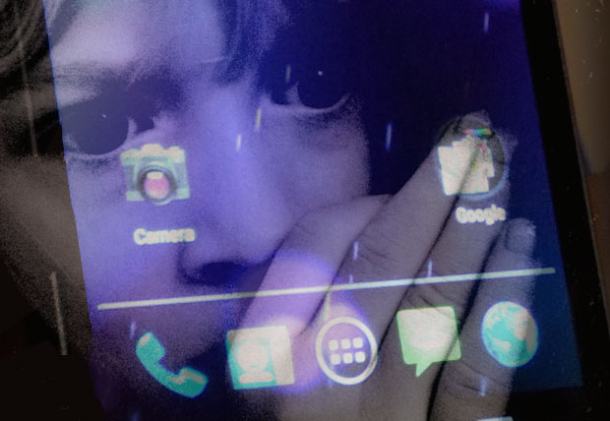ช่วงนี้จะไปไหนมาไหนก็พกโทรศัพท์มือถือไปด้วย ไม่ว่าจะใช้ในการโทร ส่งข้อความ sms แต่ด้วยปัจจุบันนี้โทรศัพท์มือถือแบบสมาร์ทโฟนมีฟีเจอร์ความสามารถในการท่องโลกอินเตอร์เน็ต แชตผ่าน social network การเล่นเกม การดูหนังฟังเพลง การถ่ายรูปที่ละเอียดยิ่งขึ้น ก็ทำให้หลายคนต้องพกมาเล่นมาแชตแทบทุกวันจนกลายเป็นเป็นอาการโรคติดมือถือ แบบชีวิตนี้ขาดมือถือไม่ได้
มีผลสำรวจออกมาจากเว็บไซต์ SecurEnvoy ที่เค้าสำรวจพฤติกรรมของเจ้าของโทรศัพท์มือถือในอังกฤษ เดือน กุมภาพันธ์ 2012 กว่าพันคนพบว่า “ผู้ชายมีแนวโน้มที่จะพกโทรศัพท์มือถือติดตัวไว้ถึงสองเครื่อง” ที่น่าสนใจคือ“สองในสามของผู้ตอบแบบสอบถามซึ่งส่วนใหญ่เป็นผู้หญิง จะรู้สึกกังวลอย่างมาก หากลืมหรือไม่ได้ใช้โทรศัพท์มือถือเช่นวันอื่นๆ ถึงขนาดที่ทำให้เกิดความกลัวการไม่ได้ใช้มือถือเลยทีเดียว “ อีกพฤติกรรมที่น่าสังเกตคือ “เจ้าของเครื่องโทรศัพท์มือถือ มักจะตรวจสอบมือถือของตัวเองโดยเฉลี่ยวันละ 34 ครั้ง!”
ซึ่งผลการสำรวจดังกล่าวได้สะท้อนความสำคัญของการสื่อสารในยุคนี้ว่าเทคโนโลยีมีความผูกพันกับชีวิตคนเรา ตลอด 24 ชั่วโมงจริงๆ แต่ก็ต้องฉลาดเลือกใช้เทคโนโลยีให้เกิดประโยชน์กับตัวเราและผู้อื่นด้วย
ที่มา : it24hrs Berkshire (UK), 16th February 2012: First identified in 2008, it would appear nomophobia – the fear of being out of mobile phone contact, is sharply increasing in the UK. A recent survey of 1,000 people in employment, conducted using OnePoll, discovered two thirds of respondents fear losing or being without their mobile phone.The study, sponsored by SecurEnvoy – the global leader of Tokenless® two-factor authentication, reveals that 41% of people interviewed, in an effort to stay connected, have two phones or more. When asked if they’d be upset if a partner looked at the messages and texts on their phone almost half said that they would.
Berkshire (UK), 16th February 2012: First identified in 2008, it would appear nomophobia – the fear of being out of mobile phone contact, is sharply increasing in the UK. A recent survey of 1,000 people in employment, conducted using OnePoll, discovered two thirds of respondents fear losing or being without their mobile phone.The study, sponsored by SecurEnvoy – the global leader of Tokenless® two-factor authentication, reveals that 41% of people interviewed, in an effort to stay connected, have two phones or more. When asked if they’d be upset if a partner looked at the messages and texts on their phone almost half said that they would.
Digging a little deeper, more women worry about losing their phones than men – 70% of the women surveyed compared to 61% of the men, yet it is men that are more likely to have two phones – scoring 47% and 36% respectively, perhaps in an effort to stay connected. When split by age it is the younger age group (18 – 24) that are more nomophobic at 77%, with the 25 – 34 age group second at 68%. Perhaps a little more surprisingly is that third most nomophobic are the 55 and overs!
“The first study into nomophobia, conducted four years ago, revealed that 53% ofpeople suffered from the condition and our study reveals this has now risen to 66% in the UK and shows no sign of abating. A reversal on the 2008 findings is that, back then, it was men that were more afflicted yet today it’s women. I’d be inclined to draw the conclusion that, perhaps because more men have two phones, they’re less likely to misplace both and therefore be left phone-less,” said Andy Kemshall SecurEnvoy CTO and co founder. “There is another study into mobile phone usethat found people check their phones, on average, 34 times a day so it wouldn’t take long for you to realise if you’d misplaced your device.”
Another interesting revelation from this study is that, with 49% of people getting upset if their messages and texts were viewed by a partner, they’re still lax at securing these devices. Forty-six percent do not use any protection at all; 41% use a four pin access code; and just 10% encrypt their device. A security conscious 3% use two factor authentication. Andy suggests, “With 58% of the respondents using at least one device for business use, this lack of security is a worrying trend that needs addressing.”
“What this study does highlight though,” concludes Kemshall “is the extent that people now rely on their mobile phones. At SecurEnvoy we have certainly seen a huge spike in demand from local government and the private sector looking to turn their staff’s phones into security devices, where they can use SMS tokenless®two factor authentication to access data securely and easily whilst on the move.”
For more about SecurEnvoy, visit www.securenvoy.com
ที่มา : blog.securenvoy
